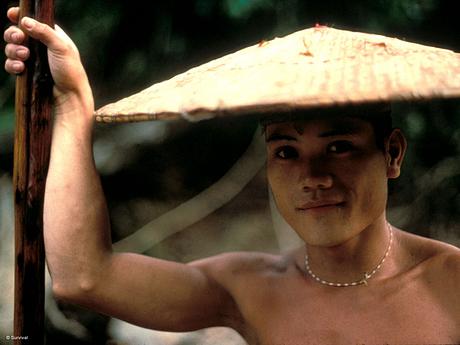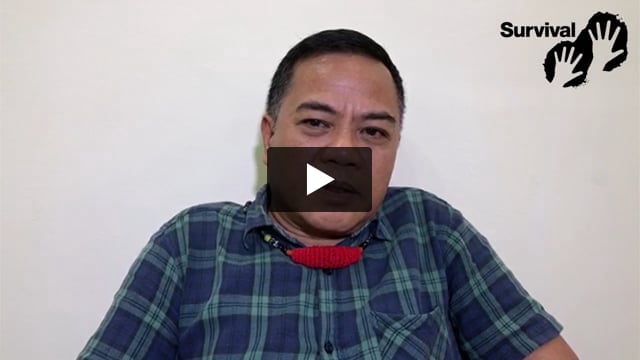Survival campaigner investigates dam and biofuel threats to Borneo tribe
April 6, 2009

This page was last updated in 2009 and may contain language which is now outdated.
A Survival campaigner has just returned from a trip to the Borneo rainforests to investigate the plight of the hunter-gatherer Penan tribe. The Penan are fighting to stop logging, oil palm plantations and hydroelectric dams destroying their last remaining forests.
London-based campaigner Miriam Ross travelled to Penan communities in the state of Sarawak, Malaysia, to find out about the Penan’s struggle for survival.
Ross says, ‘It was terrifying to see the devastation of the Penan’s land, and all the more so to know how quickly it is happening. I went to Penan communities where the loggers have taken so much of the forest that the animals have gone and the Penan have real difficulty finding food.
‘Where the forests have already been logged to death, they are being replaced with oil palm plantations for biofuels and other uses. Oil palm is even worse for the Penan than the logging, because the plantations leave no space for them to hunt or gather. Their way of life becomes impossible.
‘And this is not all. A series of twelve huge hydroelectric dams is planned for Sarawak, and will submerge the villages of Penan and other Indigenous people. The first dam is already under construction, and the Penan in the area have been told they have to leave.
‘The Penan have spent years trying to prevent the devastation of their land and their lives by mounting road blockades. But they say, ‘Our voices are small compared to the government and the companies.’ They want help to make the Malaysian government listen to them before it is too late.’
One Penan man told Ross, ‘The forest is like a bank for us. We’re not like the people in the towns who have money and can buy things. The forest is our life. If we lose it and everything it gives us, we will die.’
Photos and video footage available.
Miriam Ross is available for interview. Contact her on (44) (0)20 7687 8734 or (44) (0)7504 543 367 or email [email protected]



